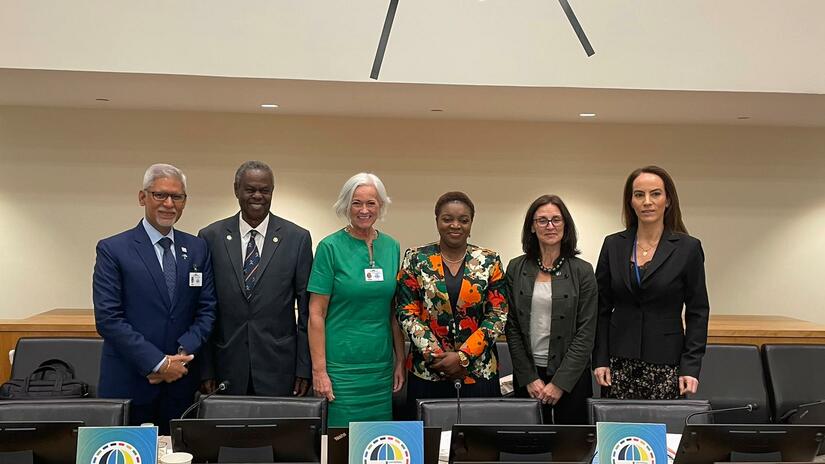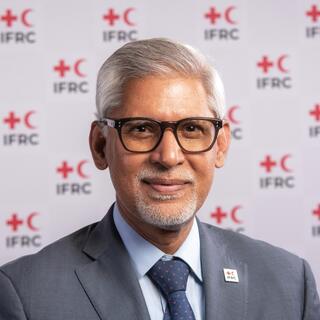Excellencies, ladies and gentlemen.
UHC political declaration marks one of the most ambitious gatherings on health.
I am happy to share the perspective of the International Federation of Red Cross and Red Crescent Societies on this important topic.
Through our experience reaching 1 billion people with health services during COVID-19, I can tell you that a primary health care approach is the only way we stand a chance to achieve universal health coverage and to ensure no one is left behind, both in times of crisis and stability.
Resilient health systems focused on primary health care (PHC) with enough trained health workers, data capacity, and well-functioning basic services are better prepared to prevent and respond to health emergencies.
Health emergencies often differ from other emergencies in their complexities, their scope, durations, and in response approach.
Here are the shifts needed to embed the PHC during health emergencies, this comes from the IFRC study on recent COVID19 pandemic:
First and foremost: trust.
Governments must do the groundwork to build trust with the public before health emergencies - people won’t use even the best health systems if they don’t trust them. How do we do this?
-Proximity: People trust people they know, such as community members.
-Education: People trust what they understand, via health literacy programmes.
-Listening: People trust those who listen to them and act on their concerns, such as trained community engagement specialists who gather feedback and analyse it.
-Access to services: People trust those who address their needs, including their basic health and social protection needs. -Ownership: People trust measures they feel ownership of and are consulted on.
Second is equity.
Do not exclude anyone. Equity is fundamental element of embedding PHC during emergencies. Migrants, refugees and other disadvantaged communities are the worst impacted by health emergencies. We need to address formal and informal barriers to access to health and other essential services, including stigma and discrimination. Data driven decision making significantly helps to ensure inclusion. Embedding a PHC approach requires integrating health information systems to facilitate real time data sharing and evidence-based decision making.
Finally, local action.
Strong Community Health Systems that combine the power of communities and technologies: We must prioritize health systems strengthening at the community level, with a well-resourced and protected community health workforce to match.
To do this, a much greater portion of existing health financing needs to go to the local level.
Universal health Coverage plans must be tailored to the communities they serve by putting them at the center of policy design.
It is groundbreaking that governments have committed in paragraph 104 of the declaration to involve local communities in the design of universal health coverage plans, and to find ways of enhancing participatory and inclusive approaches to health governance.
Excellencies, humanitarian needs are only growing, and global health is at a crossroads: without systemic change, we will only achieve health for some, and not health for all. Strong governance and leadership are expected of all of us.
In the decades since the Alma-Ata Declaration, the international community has focused more on diseases rather than on individuals, and on treatment rather than on prevention. We can’t continue down the same path and expect a different result.
Today must represent a shift towards a community-driven, primary health care-first model to global health systems.
Thank you.


